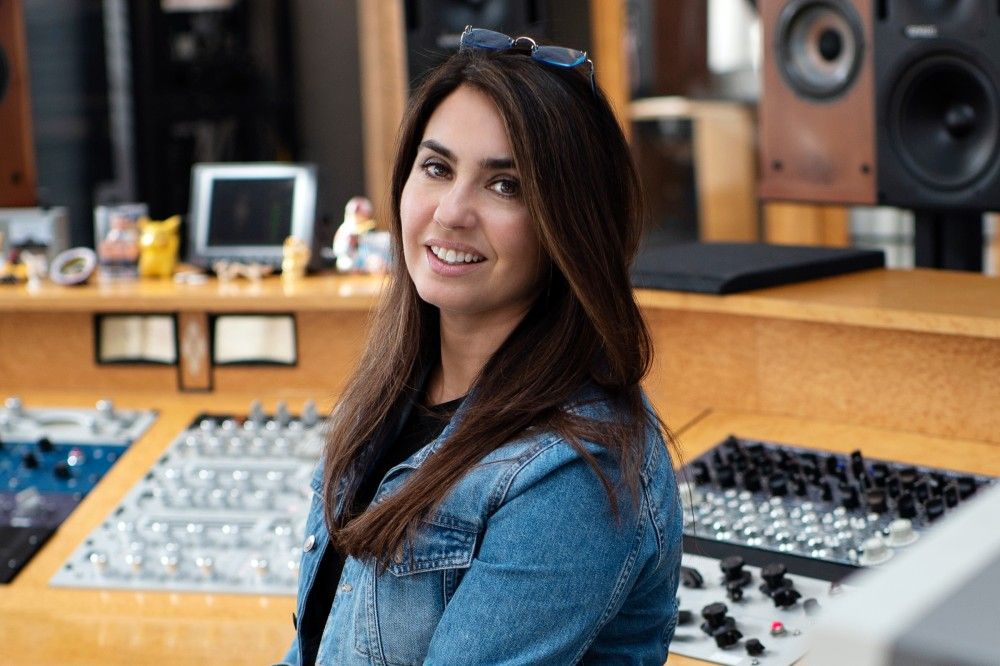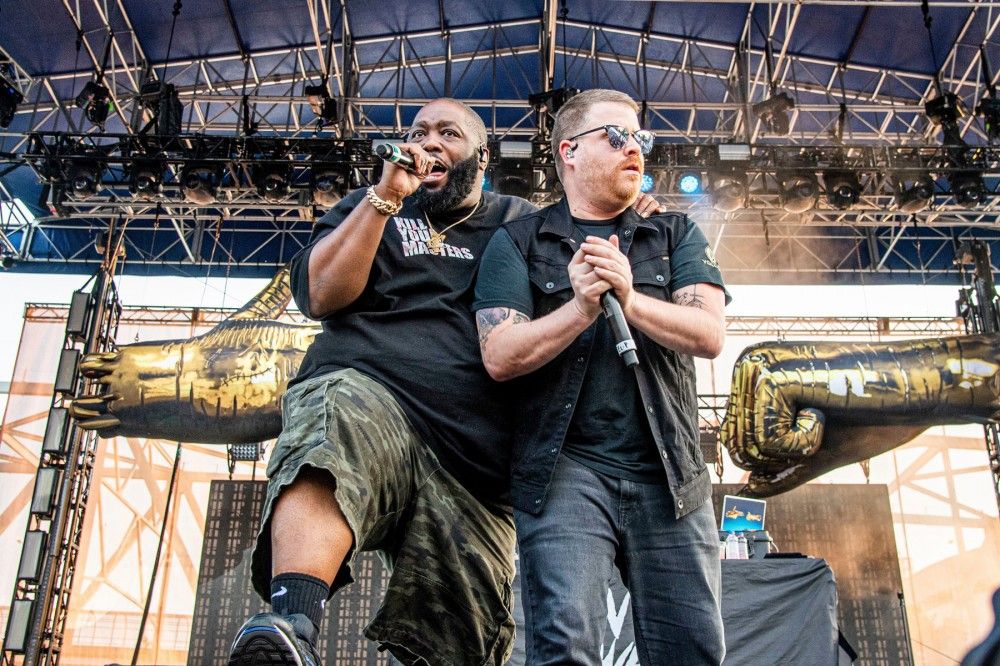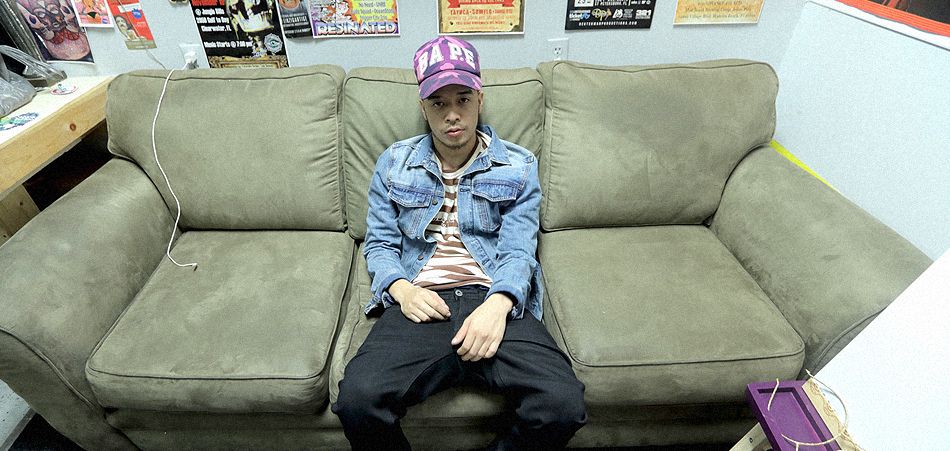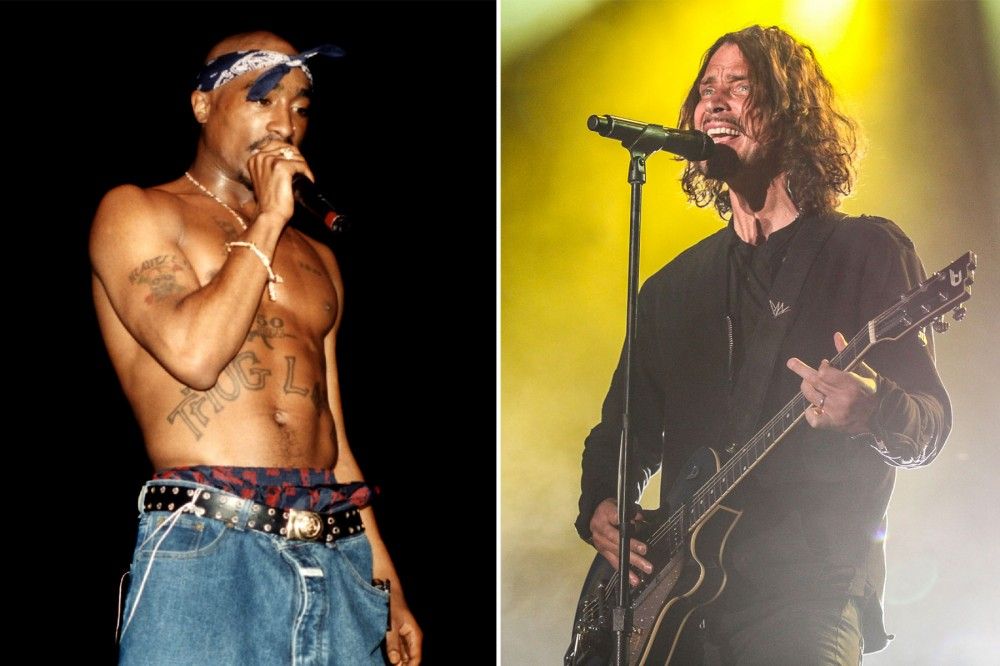
At Work With Emily Lazar, Grammy-Winning Mastering Engineer
 This is the second installment of Rolling Stone’s series , in which we explore the fast-changing music business from the perspective of a different industry leader each week. Read the first here.
This is the second installment of Rolling Stone’s series , in which we explore the fast-changing music business from the perspective of a different industry leader each week. Read the first here.
Emily Lazar has mastered, without hyperbole, nearly 4,000 albums. The founder, president, and chief engineer of her own audio mastering facility, the Lodge, the New York-based Lazar — who in 2019 became the first woman to ever win a Grammy for album engineering in the non-classical category, for Beck’s Colors — has notched more than 20 years of experience in the business after starting out as an artist, producer, and graduate of NYU Steinhardt’s prestigious Music Technology program. As one of the most sought-after engineers in music, she’s received widespread praise for her work on albums like David Bowie’s Heathen, Maggie Rogers’ Heard It in a Past Life, Vampire Weekend’s Father of the Bride, Sia’s 1000 Forms of Fear, and Sleigh Bells’ Treats, but remains humbly committed to uplifting artists and championing female leaders in the industry. As the pace of the industry picks up, her job becomes increasingly difficult, but Lazar’s self-described responsibility as a “midwife for delivering artists’ music” is no less rewarding.
How do you start work in the mornings?
If I’m in the groove, I can work all night. So my next morning is kind of dependent on what happened the last night — I’ve tried to get up at the same time every day but I just can’t do it. I hate how alarm clocks sound; they’re a horrible invention. As far as when my feet hit the floor, the first thing I do is get my son where he needs to go.
Once he’s out the door, I jump into my own “recovery” from whatever happened the night before. In my business I have clients all over the world talking from different time zones, texting while I’m asleep. So I start a clean-up, responding to what happened while I was sleeping. It seems like as soon as I close my eyes there’s a million emails.
I work out, have breakfast, and then I go into the studio. As a mastering engineer, I spend a lot of time doing a lot of listening in my studio, usually with my assistant Chris, who’s awesome.
What do you do in the studio? How do you spend your time in there?
I listen to either whatever I’m working on or things that my clients are digging — ideas, reference tracks, retro or new things they’re feeling inspired by. Sometimes the things they send over will be like, “I want my album to sound like the color yellow, as if Stevie Wonder was saying it, but it was recorded yesterday.” These amalgams of things that are really cool. So I start to create this dialogue. It’s important to me to have the ability to have the conversation with an artist, and it’s easier if it’s an attended session and they’re here with me. I’m vibing with them about what they want. If they’ve emailed me because they’re touring around the world, they’ll give me really specific notes. “I want this to sound like Fleetwood Mac but as if they …” and whatever.
We find the creative direction together. Some people want to do multiple versions of a track; some people have very specific requests; others just want me to do what I think is right.
“I want to be helpful and available to my artists. I’m like that last-chance Texaco on their last stop to make it amazing before it goes out.”
How often do you work through the night?
It depends on people’s deadlines and where they are. When I work with people in Los Angeles, since I’m in New York, I’ll be up late with them. When people are with me in the studio, it just takes as long as it needs to take and I keep going until we’re happy. So it’s happened quite a few times, because I want to be helpful and available to my artists. I’m like that last-chance Texaco on their last stop to make it amazing before it goes out, and I’m an important part of that chain because there are a lot of decisions that need to be made before a record’s done.
I read that you’ve worked on more than 3,000 albums. Does it feel that way to you? And how long does it take to work on one album?
That is actually an old quote — I think it’s actually closer to 4,000 now. It takes as long as somebody wants to take. Theoretically, I spend about an hour per track, if nobody is telling me what to do or, you know, to do it 52 times. It’s EQ’ing, compressing, editing, stem mastering. The technology has advanced us to a place where an artist can be mixing something in the studio, send it over to me, and I can master it and send it back, and we can tweak it together.
Sometimes I feel like the tech is Pandora’s box. But I’m also a big fan of being able to give people what they want and work with them until they’re happy. There is a lot of garbage out there. But I’ve worked with incredible artists, and the one thing that’s similar is that they are all very particular with how they sound and how they want their songs to be. They are always fine-tuning themselves, working to preserve, protect, and amplify what they’re trying to do. So I feel really blessed to play a part in helping them.
How do you approach your relationship to artists? Especially if they are very particular with their requests?
I’m kind of a midwife for delivering their music, bringing this thing to life. Psychologically, it’s actually similar to the birth process — I think people can be very insecure about their work and there’s this moment where they’re in the room with me and we’re holding the baby and I’m like, “Look at your baby!” They look at me and say, “Is my baby ugly?” And I get to tell them, “No, this is beautiful.” There are moments where you know you’re in love but you’re worried what everyone else will think. So it’s an honor to be in that seat.
As a career mastering engineer, do you feel like the role has changed due to the technological advancements in the industry? Is it a tougher job now?
Absolutely. It used to be that we were done and committed to tape and an album was completely mastered. There was no constant change. It was: “This is going to complete the creative picture.” Now, if you’re not 100% satisfied with where your mix is, you go back and rework it. It used to be that you mixed and then you mastered — mastering was the very end of the process.
Now, both can happen at the same time. So, if suddenly the artist says, “I really wish my vocals sounded a little grittier here, a little edgier or sweeter or warmer,” I have to adjust the frequency on the vocal, which also adjusts everything else that lives in that frequency range. So I might have to adjust the guitars, percussion, keys, as well. If a person says, “The counterpart in the chorus is not loud enough” or “The background vocals are not coming through with enough shimmer,” I have to mess with the rest of the track.
What’s the single best piece of advice you’ve ever received about your career?
“Never give up.” It’s the advice I give to everyone. There will always be naysayers, and this is a conversation I have with artists, too, who are feeling the pains of struggling through being an artist. It translates to people working in fields that are not traditionally open to them. I think if it’s something important to you and you can’t live without it and it makes your heart sing, then don’t give up. That’s your reason for being here.
“It was horrible to be the only woman in the studio. I was really hungry to learn everything. I held myself to a much higher standard because I knew everyone else around me would. I never wanted to be knocked off my block by some asshole.”
Speaking of hurdles, what do you think was your biggest hurdle to overcome?
I know it’s an obvious answer, but, being a woman. Everybody has to prove themselves, but when I started out — I didn’t have any real technical prowess, I started out writing music and I got an education in engineering because I never wanted to be pushed around in that environment — it was horrible to be the only woman in the studio. I was really hungry to learn everything. I held myself to a much higher standard because I knew everyone else around me would. I never wanted to be knocked off my block by some asshole. Last year, I was the first female mastering engineer to win the Grammy for best engineered album, non-classical. There are only maybe four awards a mastering engineer can actually win, so even being nominated was a gigantic honor.
What do you think is the biggest threat to the music business?
Terrible audio quality. Streaming has been a really amazing and powerful way to get music into the hands of listeners with immediacy, but it’s also been the bane of my existence. The audio is so degraded. The listeners aren’t hearing what’s happening in the studio, and it’s my mission to change that. It’s like seeing Starry Night on the wall — the incredible blues, deep yellows, and it’s so gorgeous — and let’s imagine we took a black-and-white photocopy and then photocopied that, and then we shrunk it down to the size of a postage stamp. Would you pay to see that? Would it stir anything in you the way the real painting does? No, it would stir some other feelings, like, “Why the heck did I pay to see this garbage?” Music is art. It makes people dance and feel things. It’s really important to protect that.
What’s your personal audio setup like, then?
I must have the biggest headphone collection of all time. My favorite pairs are probably the high-end audiophile pairs, the ones that cost thousands of dollars — Stax, Grado, Focal — but I also have AirPods because it’s important for me to decode how normal people are going to experience the audio stream. I’m really happy there are some companies trying to push the envelope as far as HD audio. I’m certainly not a fan of how files sound on Spotify! They need to address that. If the tech companies are not respecting how the artists want their music to be listened to, we’re all missing out.



